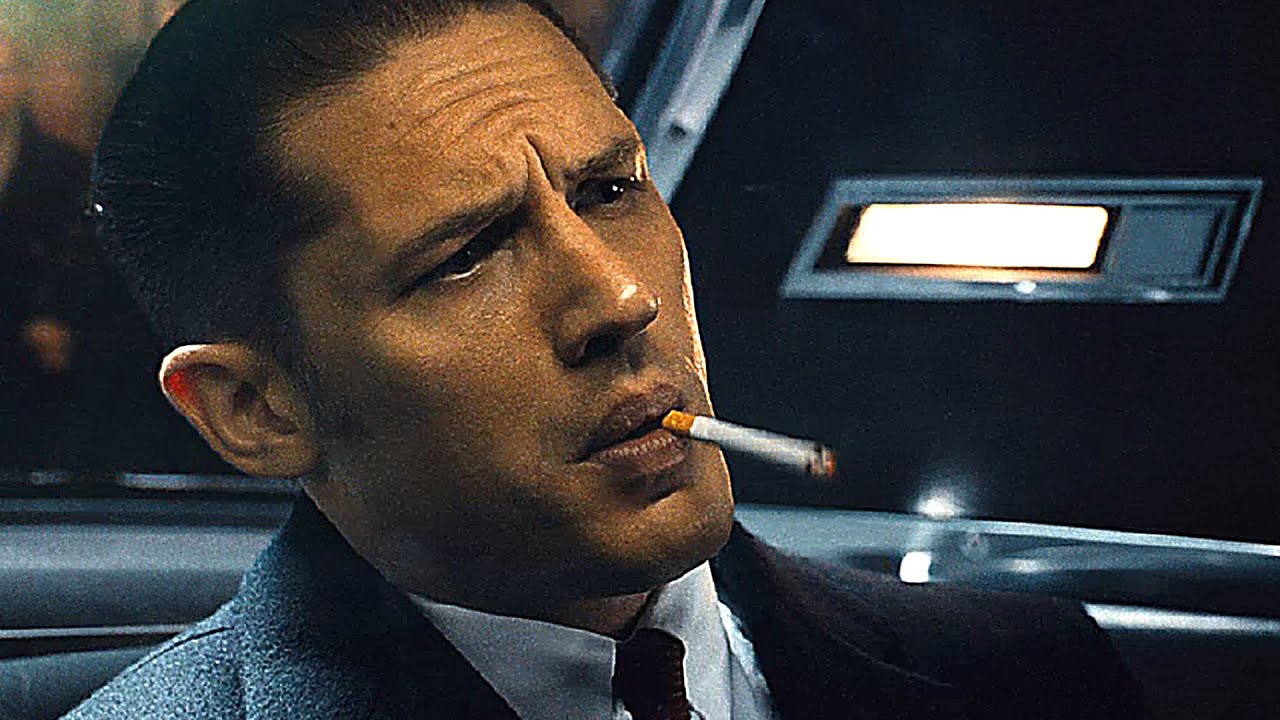

The result is a striking portrait of a single divided self: Reggie, the calculatingly cool charmer, whose sharp suits mirror his businessman’s mind Ron, the paranoid schizophrenic, whose lust for random violence is matched only by his passion for handsome young men (“I’m homosexual, but I’m not a poof”) and his dear old mum’s tea and cake. Having originally offered Hardy the role of Reggie, Helgeland was persuaded to let the actor wrestle with Ron as well (both on and off screen), a dual role to which he brings the same commitment – physical, intellectual, emotional – as Jeremy Irons essaying both Mantle brothers in David Cronenberg’s Dead Ringers. The film’s real sucker punch, however, is Hardy – both of him. Meanwhile the screen is a heady swirl of shiny streets and spangly nightclubs, with Duffy belting out Timi Yuro’s Make the World Go Away to celeb-packed crowds as flat-footed cops (Christopher Eccleston’s uptight Leonard “Nipper” Read) and lairy villains (Sam Spruell’s nicely drawn Jack “the Hat” McVitie) drift in and out of carefully choreographed frames. As a character, Shea is fragile and understated, but her voiceover puts the ripe in tripe it’s a credit to Browning that she gets through its hackneyed “gangster prince” cliches without laughing.

Frances Shea ( Emily Browning) proves our unlikely narrator, recounting the twins’ glory years through her relationship with Reggie, of whom she declares “it took a lot of love to hate him”. We begin with the Krays already ruling their East End roost, eschewing the traditional traipse through childhood, leaping straight into their turf war with the Richardson gang, which would come to a head in the Blind Beggar pub in 1966. This may be a British-French co-production, derived from John Pearson’s insider text The Profession of Violence: The Rise and Fall of the Kray Twins, but Helgeland’s worldview is more Goodfellas than The Long Good Friday, a portrait of glittering London as artificial as the Krays’ star-struck vision of themselves as the last of the famous international playboys. With an eye on the international market, Helgeland (who co-wrote the screenplay for LA Confidential) tips his hat to Scarface, White Heat and Sunset Boulevard, investing his British anti-heroes with a stateside pizzazz entirely befitting their Rat Pack aspirations. Hinging on the double-barrelled blast of Tom Hardy’s bang-on central performance(s), Legend is a brash, cartoonish affair, happy to bask in the reflected glory of its subjects’ bizarre cultural icon status. A “combination of violence and sarcasm” fuelled the Piranhas’ reign of terror, and the same could be said of these latest screen Krays, with writer-director Brian Helgeland deploying much deadpan humour amid the beatings, stabbings and shootings of East End folklore. A ny retelling of the over-mythologised Kray twins’ tale walks a thin line between the glamorised cliches of Ronnie and Reggie nostalgia and the pin-sharp parody of Monty Python’s Piranha brothers’ Doug and Dinsdale sketch.


 0 kommentar(er)
0 kommentar(er)
